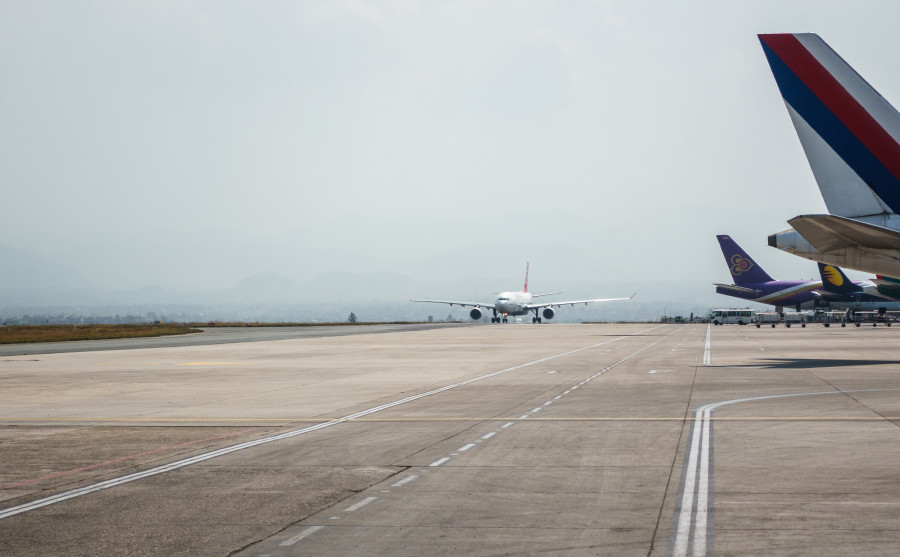Money
Billions in losses and hundreds of thousands of jobs on the line as airline industry faces pandemic
Airlines will need immediate and direct financial support from the government if companies are to avoid insolvency and mass layoffs, IATA has advised.
Sangam Prasain
The Covid-19 pandemic is likely to cause the biggest slump in Nepal's aviation industry, triggering a domino effect on the county's tourism sector, say industry insiders.
Nearly Rs50 billion revenue will be wiped out and 175,000 people rendered jobless in Nepal's aviation industry due to the Covid-19 outbreak, according to an estimate by the International Air Transport Association (IATA).
The estimate is based on a scenario where severe restrictions on travel are lifted after three months. Losses are expected to balloon with some companies facing potential collapse, according to IATA, an international trade association for airlines.
Nepal is expected to see passenger demand fall by 39 percent year-on-year, translating into losses of 2.6 million passengers in both domestic and international sectors this year alone.
Last year, Nepal's international and domestic air passenger traffic crossed 7.32 million, with more than 20,000 travellers taking to the skies daily.
The IATA is urging countries in Asia and the Pacific to take urgent action to provide financial support to their airline industry.
"While each country will see varying impacts on passenger demand, the net result is the same—their airlines are fighting for survival, they are facing a liquidity crisis, and they will need financial relief urgently to sustain their businesses through this volatile situation,” Conrad Clifford, IATA’s regional vice-president, Asia-Pacific, said in an interview with Asian Aviation, an industry publication.
Australia, New Zealand and Singapore have already announced substantial packages to support their aviation industries.
“Governments need to ensure that airlines have sufficient cash flow to tide them over this period, by providing direct financial support and facilitating loans, loan guarantees, and support for the corporate bond market," said Clifford. “Taxes, levies, and airport and aeronautical charges for the industry should also be fully or partially waived.”
Nepal announced an extension to the nationwide lockdown for at least one additional week until April 15 and extended the suspension of regular international flights until April 30. Domestic flights are suspended until April 15.
“In the context of the Covid-19 outbreak and extended lockdowns all around the world, airlines and tourism industries have been and will be the hardest-hit for at least two years," said Vijay Shrestha, vice-president of administration at Himalaya Airlines. "Many companies in the sector will become insolvent and the survival will be tough post outbreak if the government doesn’t support us.”
Helicopter companies have already decided to slash salaries for their pilots and engineers for April by 65 percent as they move to cut costs amid the deepening coronavirus pandemic.
Airlines flying fixed-wing aircraft are expected to follow suit.
According to Shrestha, the government should provide tax waivers for two years on aircraft lease, VAT, insurance and import of spares, and remunerate taxes.
Two years’ waiver of airport landing, parking and navigation charges at Tribhuvan International Airport, interest refinancing by the government for a year, and rescheduling of loans would do a lot to bail out the industry, he said.
Raj Kumar Chhetri, spokesperson for the Civil Aviation Authority of Nepal, said that governmental support is needed immediately; otherwise, airlines may collapse, leaving hundreds of people jobless.
"We are planning to consider a waiver on airport parking charges for local airlines to allow them to recover from the current crisis," said Chhetri. "Once the management approves the proposal, it will be tabled at the board before being sent to the Cabinet."
IATA has advised direct financial support to compensate for reduced revenues and a liquidity crisis caused by travel restrictions imposed as a result of Covid-19.




 14.12°C Kathmandu
14.12°C Kathmandu













